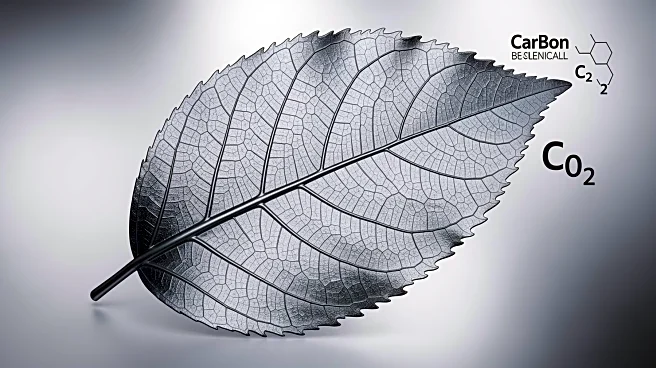What's Happening?
Researchers at the University of Cambridge have created a solar-powered device that mimics photosynthesis to convert carbon dioxide, sunlight, and water into valuable chemical fuels. This 'semi-artificial
leaf' uses organic polymers and bacterial enzymes to transform these inputs into formate, a clean fuel. The device operates without an external power supply and is designed to be safer and more durable than previous models. The research aims to provide a sustainable alternative to fossil fuels in chemical manufacturing, potentially reducing the chemical industry's carbon footprint, which accounts for about 6% of global emissions.
Why It's Important?
The development of this artificial leaf represents a significant advancement in sustainable chemistry, offering a potential pathway to 'de-fossilize' the chemical industry. By providing a method to produce essential chemicals without relying on fossil fuels, this technology could help reduce carbon emissions and promote a circular economy. The ability to convert CO2 into valuable products could also contribute to efforts in combating climate change. The research highlights the potential for green chemistry to transform industrial processes, making them more environmentally friendly and sustainable.
What's Next?
The researchers plan to further develop the artificial leaf to extend its lifespan and adapt it for producing different types of chemical products. This could involve refining the device's design to enhance its efficiency and durability. The team aims to create solar-powered devices that are not only efficient and durable but also free from toxic or unsustainable components. This ongoing research could lead to new applications in green fuel and chemical production, potentially revolutionizing the chemical industry.










